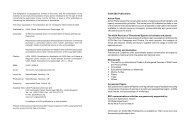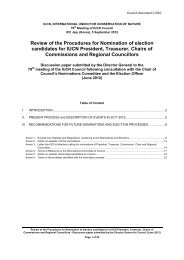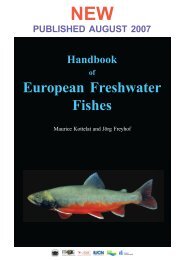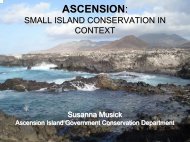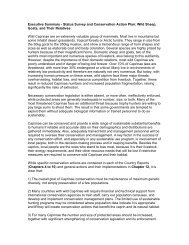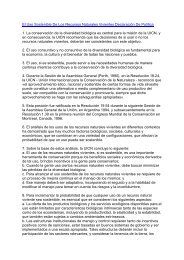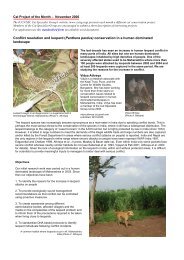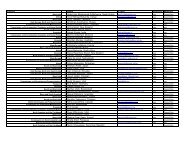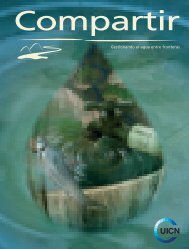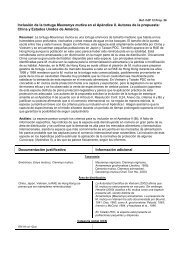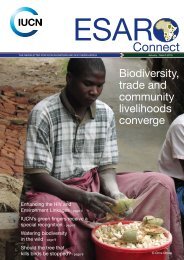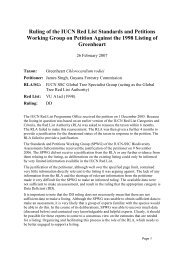Planning education to care for the earth - IUCN Knowledge Network
Planning education to care for the earth - IUCN Knowledge Network
Planning education to care for the earth - IUCN Knowledge Network
You also want an ePaper? Increase the reach of your titles
YUMPU automatically turns print PDFs into web optimized ePapers that Google loves.
Zambia: Environmental <strong>education</strong>Juliana ChiesheAbstractAlthough <strong>the</strong> need <strong>for</strong> environmental <strong>education</strong> is recognized inZambia, much remains <strong>to</strong> be done <strong>to</strong> establish a strategy and obtain<strong>the</strong> means <strong>to</strong> develop fully a programme which will create awareness,change attitudes, equip individuals and communities with knowledgeof <strong>the</strong> environment, and ensure <strong>the</strong>ir involvement in solvingenvironmental problems. Education will emphasize <strong>the</strong> benefits ofinvestment projects started under <strong>the</strong> National Environment ActionPlan which permit people <strong>to</strong> exploit natural resources withoutexhausting <strong>the</strong>m.IntroductionA comprehensive programme <strong>for</strong> conservation <strong>education</strong> was described as“<strong>the</strong> surest long-term strategy <strong>to</strong> bring about <strong>the</strong> sustainable use of naturalresources in Zambia” in <strong>the</strong> National Conservation Strategy (NCS), preparedin 1985. Under <strong>the</strong> NCS, <strong>the</strong> Environmental Protection and Pollution ControlAct was enacted in 1990 and <strong>the</strong> Environmental Council of Zambia (ECZ)was established.The NCS did not, however, propose plans of action or a time frame <strong>for</strong> <strong>the</strong>irexecution, and financial and o<strong>the</strong>r resources <strong>to</strong> put <strong>the</strong> strategy in<strong>to</strong> effectwere not provided. A holistic approach <strong>to</strong> conservation was lacking. TheNCS was prepared without broad-based participation, and <strong>the</strong> fact that <strong>the</strong>people have not had <strong>the</strong> opportunity <strong>to</strong> study it means that many Zambiansare unaware of its existence.The National Environmental Development Plan (NEAP) has been introducedrecently <strong>to</strong> translate <strong>the</strong> NCS in<strong>to</strong> action. A major goal is <strong>to</strong> ensure thatenvironmental issues are taken in<strong>to</strong> account in planning development. TheZambia Environmental Education Programme (ZEEP), supported by <strong>the</strong> WorldWide Fund <strong>for</strong> Nature (WWF), rein<strong>for</strong>ces NEAP; if <strong>the</strong> environment is <strong>to</strong> betaken in<strong>to</strong> account in <strong>the</strong> execution of economic and social policies, widepopular support is needed and here <strong>education</strong> has an important role <strong>to</strong> play.The state of environmental <strong>education</strong>In <strong>the</strong> evolving environmental <strong>education</strong> strategy, educa<strong>to</strong>rs collaborate withpolicy and decision-makers and specialists in <strong>the</strong> management of natural149



